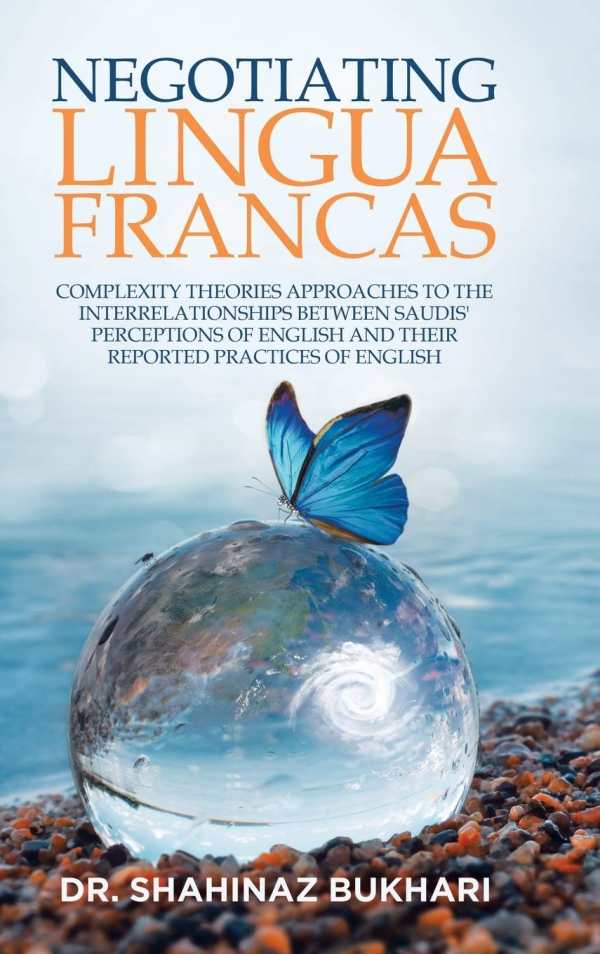It looks like you've stumbled upon a page meant to be read by our code instead of viewed directly. You're probably looking for this page.
Negotiating Lingua Francas
Complexity Theories Approaches to the Interrelationships between Saudis' Perceptions of English and Their Reported Practices of English
Negotiating Lingua Francas is a fascinating look at the diversity to be found within and among languages.
In her language arts study Negotiating Lingua Francas, Shahinaz Bukhari examines the dynamism, fluidity, and purposes of English as it is used by Saudis.
“Lingua franca” derives from an Arabic term that denotes any language used to communicate with others who may or may not share a native language. In the Kingdom of Saudi Arabia, Bukhari reveals, English is taught at multiple school levels and is used in a variety of contexts. But she asserts that there are different types of English at play—for example, English as a native language versus English as a second language. Her book, while focusing on English as a lingua franca, posits that these different types of English are designed to meet different needs. It also suggests that a person’s stated goals for using English reflect their tolerance for deviations from Standard English.
Surveys and interviews are included as part of Bukhari’s investigation into Saudis’ ways of, and reasons for, using English, as well as their personal opinions about English and the implications of its popularity. All of the shared information is organized in a clear, logical way, though the book makes frequent use of academic jargon, so that prior knowledge of social sciences or linguistics is helpful for the audience.
While professional academics will benefit most from Bukhari’s study, its main points are accessible to diligent laypeople. Its extensive discussions of the theories and methodologies used, as well as its appendices featuring samples of the materials given to and received from participants, result in a transparent look at how Bukhari met her stated goals and analyzed her data.
From Bukhari’s two research questions come a deluge of complex, informative results. The book shows that most Saudis take a positive, broad-minded view of English and its variants, like so-called “Saudi English.” Non-Standard English is even used as a way of asserting one’s cultural identity. These revelations exist alongside more sobering statistics, such as of the number of Saudis who avoid using certain expressions around non-Muslims to avoid scaring them or being labeled a terrorist. Tables break down the study results and allow others to examine the results for themselves.
Bukhari’s work has implications for English speakers and learners throughout Saudi Arabia. It gives insight into how languages interact, and into what types of English-language instruction Saudis find acceptable and useful. These conclusions are eye-opening for people outside of Saudi Arabia, too, encouraging a reevaluation of what is “right” and “wrong” when it comes to English usage. The results are invaluable for their insights, both for Saudi English users and for linguists all over the world.
Utilizing impressive research and multiple methods, Negotiating Lingua Francas is a meticulous cultural study that explores the many ways that language is created, recreated, and utilized.
Reviewed by
Eileen Gonzalez
Disclosure: This article is not an endorsement, but a review. The publisher of this book provided free copies of the book and paid a small fee to have their book reviewed by a professional reviewer. Foreword Reviews and Clarion Reviews make no guarantee that the publisher will receive a positive review. Foreword Magazine, Inc. is disclosing this in accordance with the Federal Trade Commission’s 16 CFR, Part 255.
